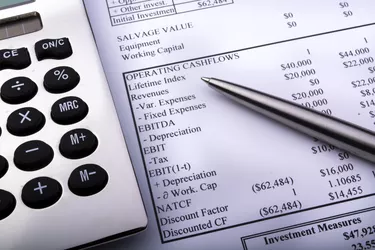
When borrowers fall months behind on payments, creditors may turn the debts over to third parties for collection. Credit reporting agencies are notified. A third-party debt collector may be a debt collection agency or lawyer specializing in collecting delinquent accounts. Alternatively, creditors can sell accounts to a debt buyer. Whichever approaches a creditor takes, collections normally stay on a credit record for seven years after the account originally became delinquent.
Dealing with Collections
Video of the Day
Accounts to a debt collector are reported to the credit bureaus as being charged off or sold to a debt buyer. The debt collector then reports the debt as a new account that is added to your credit history. The original account and the collection account can stay on your credit record for up to seven years, at which time both are removed. The Nolo website says you may be able to get collections removed early as part of a payment agreement with the debt collector, or the original creditor if the debt hasn't been sold. You'll need to offer payment terms the collector or creditor is willing to accept. Explain what you are doing to improve your handling of credit and why you fell behind in your payments. Once you have a written agreement, check your credit report to make sure the collection is removed. The Fair Credit Reporting Act gives you the right to request free copies of your credit reports from credit bureaus through the Federal Trade Commission's authorized provider, AnnualCreditReport.com.
Video of the Day